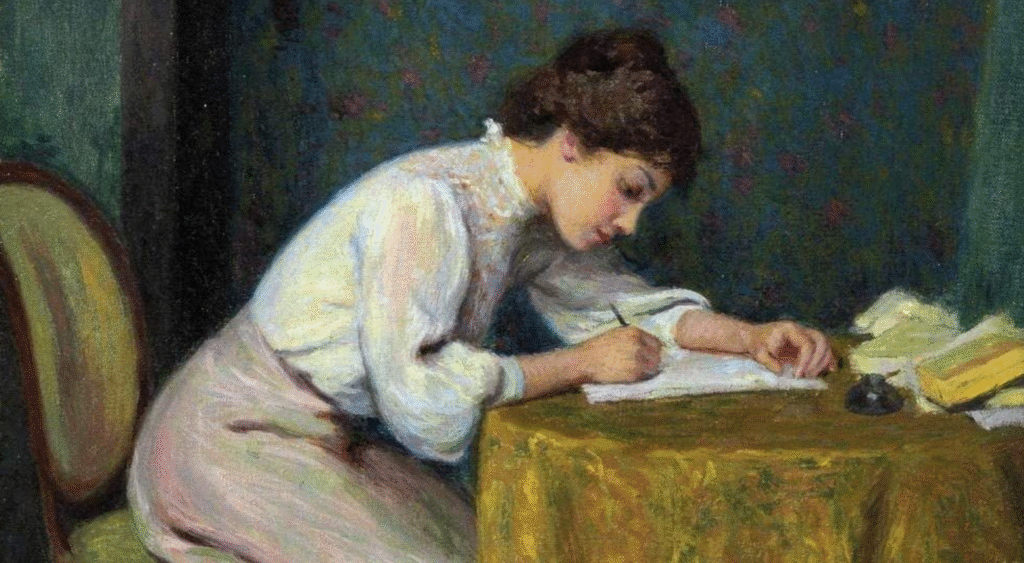
Ever felt a whirlwind of emotions but had no idea why? One moment you are fine, the next you’re confused, anxious, maybe even angry–all at once. We all have been there.
That’s where journaling for mental health comes in. More than just a cute aesthetic you see on social media, journaling is a powerful practice for emotional clarity and self-awareness. It’s not just a trend—it’s a tool backed by science that helps you manage stress, process feelings, and improve your overall mental well-being.
Journaling is a practice in which you write about your feelings and really anything that is going on in your mind. It can also be done through a specific prompt like “Write about the time you lashed out at someone”, and many more such prompts depending on what part of yourself you wish to explore.
You may be wondering how writing about a situation or a feeling is helpful. You may be worried that writing about a painful experience may make you feel those uncomfortable emotions again. These are some common things that come to mind when journaling is introduced. Let me assure you, this blog has everything you need to wrap your head around the idea, promise! Let’s start by understanding why we avoid discomfort in the first place and how journaling can help us work through it.
Why even attend to the discomfort?
We all have this tendency to avoid a problem or anything uncomfortable. That’s why we doom scroll, play video games, or drown ourselves in work, just so we can avoid the discomfort. However, this prevents us from fully attending to the problem, paralysing us and making us unable to do anything about it. The problem persists, sometimes even getting worse, and we just watch it happen. We feel powerless and small in our own lives.
How Journaling Improves Mental Health
Now, let’s dive into the ways journaling can help with your mental health.
Journaling Helps You Face Problems Honestly
As I mentioned earlier, our instinct may be to shy away from discomfort, but journaling helps you to confront and process your feelings rather than ignore them.
Exposing yourself to negative thoughts can act as a form of exposure therapy, where your mind becomes more accustomed to the discomfort of having those thoughts and thereby allows you to explore these thoughts from a more resilient and productive approach. Journaling is one way to do so.
Exploring negative thoughts makes you see the inconsistencies in them, treat yourself with more compassion and inspire real change.
Journaling Builds New Perspectives and Narratives
Journaling is a cohesive exercise to make sense of the events around you. Journaling isn’t just recording your experience; it reshapes it. It allows you to reflect and reframe what happened with more clarity and kindness.
Building a narrative through journaling has been proven to affect the way people adjust the language they use to describe their situations. For Instance:
- If you blame yourself for your response to unprecedented times, through journaling, you may come to realise the impact of external factors.
- If you tend to blame others, writing these thoughts down can help you realise your contribution to the outcomes.
For instance, your thoughts transform from “They shouted at me because of me” to “They shouted at me because they couldn’t regulate their emotions.”
Journaling Creates a Safe Space for Emotional Expression
Sometimes, we want to express our emotions but lack an outlet to do so. Journaling can be a safe space for your overwhelming emotions. Paper will never judge you, and you can just let it all out. You may poetically express yourself, draw or paint to convey your feelings. Journaling provides an almost cathartic release. Many people report feeling lighter after doing it.
According to Matthew Liebermann, a psychologist at UCLA:
“Brain scans on volunteers showed that putting feelings down on paper reduces activity in a part of the brain called the Amygdala, which is responsible for controlling the intensity of emotions.”
Controlling the intensity of emotions will ultimately help you regulate your emotions. This can lead you to do the next right thing, avoid making impulsive decisions and not do it “for the plot”.

How to Start Journaling for Mental Health
Start by sparing at least 15 minutes to journal thrice a week. I know “very specific”, right?
Numerous studies show that for most people, 15-20 minutes of journaling is enough to dive into a feeling or idea, providing a meaningful short-term relief.
But the frequency of journaling also depends on how you’re choosing to journal. Here are some of the types that help you get the best out of journaling:
Expressive Writing:
In expressive writing, you write about your intense feelings and experiences. At first, you don’t need to be very analytical or poetic; you can simply start by writing as you think. No editing, no altering, just writing the raw pieces of your hurt, disappointment, anger or envy.
Remember to practice compassion when examining these unfiltered aspects of yourself. Then you can begin to analyse and build helpful narratives for growth and alignment.
For expressive writing, three times a week is the optimum amount with 15-20 minutes per session. More than that will lead you to ruminate, offering no new insights, and more distress.
Gratitude Journal
In a Gratitude Journal, you write about the things you’re thankful for. You elaborate on at least 4-5 things you are glad to have in your life.
The practice can really maximise your happiness by reminding you of the things you’re blessed with. It also makes you less pessimistic and more hopeful. By being more optimistic, you actually believe that your efforts do make a difference, enhancing your self-belief and prompting you to give your 100 per cent.
For a gratitude journal, focus on consistency and quality rather than the time spent in each session. You can start with 2-5 minutes every day, or 10-15 minutes a few times a week. This amount will lead you to appreciate all you have without it feeling like a chore.
Free-Form Journaling
This is the type in which you write whatever comes to mind; it can be random– something you noticed, something you are dreading, someone you’re trying to be like– anything. This style is the most unstructured of all.
Because of its randomness, you get to notice what usually goes unnoticed:
- What takes up your mind the most,
- What is something you don’t pay enough attention to
- What emotions override you the most
- How you approach a problem, and
- How do you talk about yourself?
Free-form journaling can contribute to better emotional regulation, self-awareness and overall well-being. Something like 20-30 minutes is good for each sitting. But if that seems daunting, even doing it for 10 minutes every day is enough. Remember to write as long as it feels useful, but not so long that it feels like dragging. I would recommend doing it twice a week. But there is no hard and fast rule for this type of journaling.
Note that all these types of journaling can be guided through prompts.

A Personal Note
When I first started journaling, I just jotted down what was going on in my mind– the free-form, because I just wanted to be witnessed for my mess without making it poetic or digestible. And well, I got exactly that, I was feeling seen for the hot mess I was.
This made my raging emotions flow through me, not consume me. In short, I was able to regulate my emotions with more ease, not by pretending, but by feeling and letting them through me.
Over time, I also got a clear idea of what really matters to me. Why did this one thing keep happening to me? And it usually turned out that changing just a couple of behaviours can prevent the thing powerfully.
I also got clear about what expectations I had with myself and others. This led me to have those difficult but necessary conversations with the people I share close bonds with.
Journaling also allowed me to share those things that got me stupidly excited, frustrated, and confused, because paper will never frown at my ridiculously charged-up self.
Here are some prompts to get you started:
- What are the top 3 things you are grateful for?
- Do you like who you are right now?
- What have you been telling yourself lately? Are these thoughts positive, or are you being too hard on yourself?
- What drains your energy?
- What do you need more of in your life? More connection, purpose, creativity or something else?
To sum it up…
Journaling is not just writing on paper; it is a practice of self-awareness, healing and emotional growth. So next time you feel overwhelmed or need expert advice, pick up a pen. You may realise the expert was you all along. Start journaling today with one of these prompts.
